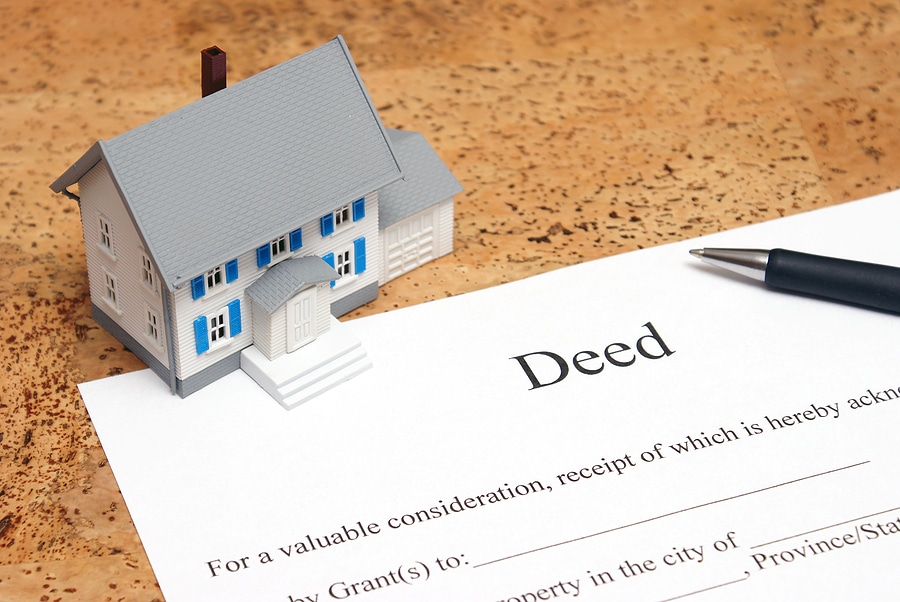Ensure Your Property Ownership Details Are Up-to-Date with Your Insurance Provider

Does the name on your insurance policy match the name on your property deed? While this may sound like a trick question, it’s a situation that we encounter from time to time. Property deeds change for several reasons. This article explains why you need to notify your insurance partner of any changes affecting the ownership of your property. Not doing so can lead to serious and expensive consequences if that information isn’t current.
Why Accurate Ownership Details Matter
Consider the following, common example. As part of your estate or financial planning, you decide to transfer ownership of your property to a trust or a limited liability company (LLC). That may be a smart move: in many cases, it can protect you from liability and provide potential tax benefits.
A couple of years later, you have a fire or a break-in, or a tenant slips and falls on your front steps. “No problem,” you think, and file a claim with your insurance company.
Your claim is denied. What happened?
The information you gave your insurance company before transferring the property into a trust or LLC is no longer valid. What may seem like a minor paperwork error can have expensive consequences.
Common Scenarios Requiring Ownership Updates
Many buildings transfer ownership when the business entity behind it changes hands, such as owners forming a new corporation or partnership. Some owners may also choose to retitle a building in the name of a trust.
Taking on new partners or co-owners is also fairly common. Even if the new partners or co-owners play very minor roles, and the initial owner has primary responsibility for building management, even a “minor” paperwork change should be communicated to the insurer.
Imagine that a couple buys a rental property and titles it in their names. The insurance policy is also in their names. Later, they move the building into a trust. Now the building is no longer owned by John and Mary Smith. According to the deed, the current owner is John and Mary Smith Trust.
Something happens and the couple files an insurance claim. The claim is denied because John and Mary Smith are no longer the listed owners of the property.
“But that’s us,” say the Smiths. “We still own the building. We still manage the tenants. We still pay the insurance premium. Doesn’t the insurance company know that it’s us?”
It’s not a question of what the insurance company “knows.” It’s a question of the paperwork—specifically, the legal entity that owns the property. And if that legal entity is a trust or an LLC and the policy doesn’t match, then you have a headache. Because the insurer only “knows” what the paperwork says.
Step-by-Step Guide to Updating Your Ownership Information
Contact your insurance agent or broker to help you with this process. Essentially, the insurer will need a copy of the new deed showing the legal owners of the property. If the building has a mortgage or other financing in place, the lender will need to be notified (and probably want a copy of the new deed) as well.
Even if the initial contact is a phone call to an agent or broker, make sure every step is documented in writing. You never want to contest a denied claim by saying, “But I called and told you.” Obtain written acknowledgment that the insurer—and lender, if applicable— are aware of the ownership change. You may also need to contact the title insurance company. (Note: A full-service insurance partner can handle all of this administration for you.)
If your broker or agent doesn’t already conduct an annual review of your policy to double-check that it’s still the best policy for you, this would be an excellent opportunity.
Keep Your Property Ownership Details Current
The key to avoiding potential insurance issues is simple: keep your agent/broker informed.
If you do anything that affects your property, make sure your insurance agent/broker knows about it. If the name on the deed changes (who owns your property), you’ll save a lot of time and trouble down the road if you tell your insurer now.
That can be more than just a change in paperwork. What if you own a rental property with multiple units, live in one and rent out the others?
Not only can keeping your paperwork current help avoid issues with claims, but it can also benefit you as long as you own the building.
Here’s an example. We recently had an opportunity to save a customer money by switching insurance carriers. Unfortunately, the name on the deed didn’t match the policy, which delayed the change—and savings. (As a reminder, you can change insurance companies at any time.)
Keep in mind that if the building is owned by a legal entity, rather than you personally, you need two insurance policies:
- One to protect the building and the building’s legal owner
- A second to protect you and your belongings as a tenant in the building
Every situation is different. Before you make any changes to the ownership of your property, we strongly recommend consulting a legal expert.
Just make sure you keep your insurance company in the loop as well.
If you have any questions about insurance or your current insurance policy, or would like a no-obligation insurance review, please call us at 877-576-5200.

